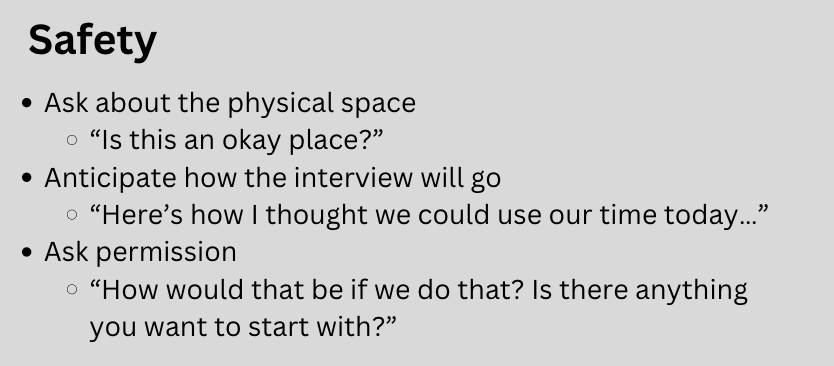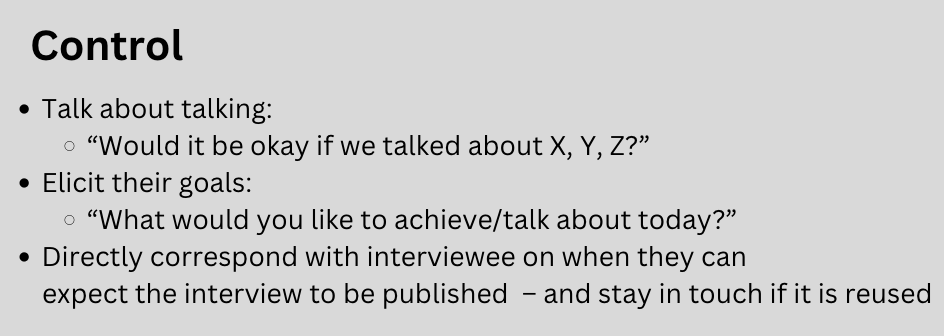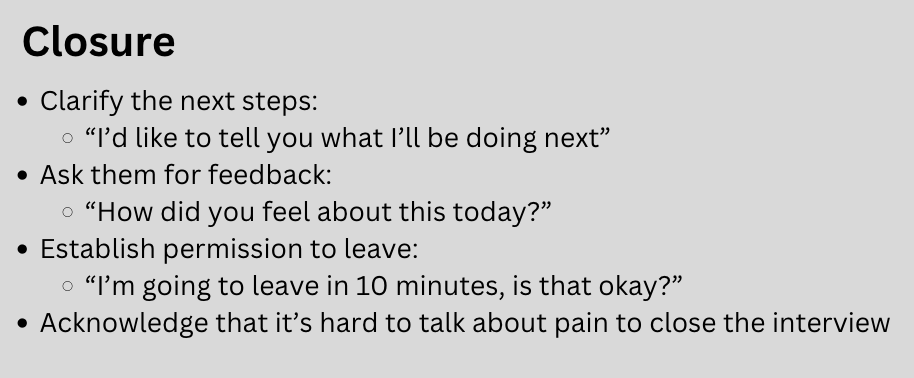Trauma-informed reporting

Interviewing survivors of traumatic events should be done with a careful sensitivity and special technique. Important distinctions should be made to establish trust during your interview, allowing survivors to open up and share their stories as they wish to be told.
The first step to building a sense of trust with your source is to create a safe place. Encourage the survivor to share their story, but do not force them. Recognize if they are feeling uncomfortable, and re-evaluate whether it is the right time to conduct the interview. Reschedule if you think it is best.
Shraddha Verma, a visiting fellow from Nepal at the Marie Colvin Center for International Reporting, has been trained in trauma-informed interviewing techniques for her work with ECPAT Luxembourg in Kathmandu, an NGO which protects children from exploitation and trafficking. She shared her knowledge of responsible and ethical reporting with us.
"Every time you go and talk to someone you need to be very clear about what your 'Why' is, as in, 'Why am I doing this?' What is your intention in interviewing this person and what story are you trying to get?
Shraddha Verma, Visiting Fellow, Marie Colvin Center for International Reporting, Fall 2023
Video by Shraddha Verma
It is important to research your story as much as possible before your interview. This will allow you to create questions that avoid triggers and are more appropriate to answer. Also inform your source what the purpose of your interview will be.

Be intentional about your choice of words and framing of questions. Deciding to use the word "survivor" instead of "victim" can set the entire tone for your interview -- are you approaching your source with pity, or are you trying to connect with them through empathy?

Pity can force your interviewee into a box where they are viewed solely as a victim of their experience, potentially traumatizing them further. Instead, be an active listener. Don't ask, "What's wrong?" Ask, "What happened?" Let them tell their story as it comes, without judgment or interruption.
This emphasizes the source's humanity and helps them to feel in control of the narrative. While they may have experienced a distressing event that is going to be shared in the media, they are more than just a victim or statistic. It is important that they feel comfortable trusting you with their story.
"I learned how to not re-traumatize people. One of the things that I do with every story is say, 'I need you to know that you are in charge. If you don't like a question that I asked, or if I ask it incorrectly, I want you to have agency to tell me. I want you to feel in control of this conversation. If you don't want to answer something, you don't have to.'"
Elaine Aradillas, former crime reporter for People magazine and The Messenger

For each interview you conduct with survivors, be sure to carry a list of mental health resources, where possible. It is essential to make sure your source is properly taken care of after your interview is completed, especially if the questions are difficult to answer and result in reliving a traumatic experience.
Since most journalists are unprepared or unqualified to serve as mental health experts, having a list of professional help can be life saving for your source.

When writing your story, do not use personal information, such as the specific name, address, or workplace of your source, unless you receive consent. Take particular care with minors, even if you have obtained parental consent. There may be a stigma surrounding what they experienced, and having that digital footprint is nearly impossible to erase.
Inform your source if their story is going to be used at a later date. If they come across their interview being distributed months or years later without their knowledge or consent, they can be triggered and retraumatized by the experience.
Prioritize your source's health and well-being throughout your interview and reporting process. Remember their trauma is being publicly shared, which takes a great deal of vulnerability and openness for the benefit of others.
